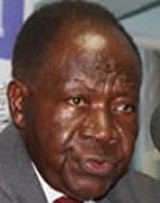Can pursuit of self-interest promote development?
Many students of politics and practising politicians in Ghana believe the failure of communism casts a shadow on socialism, and that ideology is no longer relevant in economic policy.
Advertisement
Capitalism is to them the only path to economic and social progress. It should, however, be capitalism with a human face bereft of greed and avarice.
Our political leaders therefore talk about private enterprise being the engine of growth. They conjure up happy collaboration of state and private individuals or groups to build the brave new prosperous Ghana we all desire.
But is belief in personal and community interest working together for the common good without the binding force of a higher purpose or belief realistic? And should the state especially a developing country like Ghana abdicate its duty to groups of individuals however good their intentions?
Of course the community or state is made up of individuals whose enterprise benefits the state. The farmer in growing corn to feed the family produces a surplus which helps to feed his neighbours.
In case of drought or other mishap, he or she falls on fellow producers to make suitable arrangements. Simple trade has turned sophisticated and complicated in modern exchange of goods and services.
Individuals or groups of people come together to form companies which produce goods and services for the community. When things go well, the individuals in the group benefit. But they face ruin when government policies fail to address changing situations or disasters appropriately.
Private groups or companies therefore tend to look primarily after their own interests. They put pressure on government to adopt policies which promote their interests. Meanwhile governments are supposed to make laws and regulations which protect the interests of the citizens as well as those who own the group or company.
Private enterprise expresses itself in companies whose principal aim is to make money. Ordinary citizens buy shares in the company and benefit by way of dividends. Life is good for them when the company makes good profits and declares handsome dividends. Few consider how the company works.
But the Directors and Management of the company have to make money in the jungle of the market. When the gold price was $35 dollars an ounce, some folded up, and others stopped putting the money of investors into the pits.
When prices shot up to $1,000 an ounce and over, they returned to the pits and put a lot of profits where it was safe and available for other profitable ventures. Their activities in this case benefited the state but their main aim was to promote the interests of shareholders. Shareholders are glad when they get high dividends and complain when interests are low and especially when economic conditions turn harsh.
Government cannot therefore leave its responsibilities for the economy to companies or private enterprise to enter particular fields. Government can, however, partner or advance money or provide facilities to private enterprise. But private enterprise cannot be the engine of growth in Ghana.
When there is no path for the engine to traverse it stalls. It may perform this role in countries where facilities for growth are established.
Ghanaians are an enterprising people. They rose to the occasion to provide unavailable goods and services during the Second World War. They answered Acheampong's 'Operation Feed
Yourself' call with admirable enthusiasm, and good results.
Even in present circumstances, many have and are building enterprises to further their economic interests.
The proliferation of kiosks in front of residential houses and even on the streets is an indication of the enterprising spirit of the Ghanaian. This spirit must be harnessed by channelling it to useful areas.
As should be clear from the observations already made, private enterprise is propelled by self-interest. It often involves personal sacrifice, and ruin is the fruit of failure. Therefore the individual does everything to avoid failure. If he or she must bribe his way to get ministerial or official approval, so be it. The bribe is paid and the consumer or citizen eventually foots the bill while the business or enterprise thrives.
Corruption is not ingrained in the Ghanaian character. Government policies and their execution promote bribery and corruption. Failure of authority to maintain discipline and punish offenders fuels corruption in Ghana. Self interest determines many of our actions.
I was lucky to argue politics with leading intellectuals in my student days. The theologians especially Christians, maintained that the expectations of socialism would fail if no account was taken of human nature.
I argued that human nature was not static and that socialism would produce the new man who would labour for the greater good of society. Events have shown that we cannot expect a changed human nature.
Our system is producing new elites whose self-interest must be curbed for peace and progress.
We should not allow them to abdicate their responsibility for the economic and social well-being of the nation. It may be human to be greedy, but the elites in the government offered themselves for the difficult task and we elected them.
We the people have a duty not to make democracy a once-in-four-years affair. We should expose excessive self-interest by our leaders and promote the national motto of Freedom and Justice.
And for justice to prevail in the distribution of the fruits of the available economic resources, we would do well to remember the saying of the distinguished German-American Theologian Reinhold Niebuhr “Man's capacity for justice makes democracy possible; but man's inclination to injustice makes democracy necessary.” And I would add “makes true democracy imperative.”
 Article by K. B. Asante
Article by K. B. Asante




